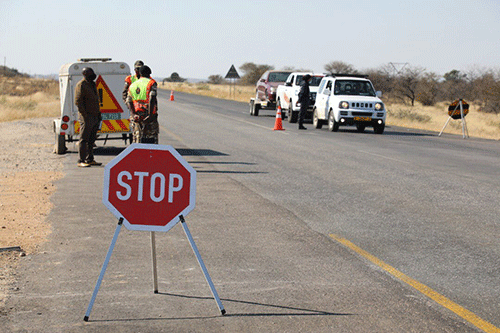The Southern African Alcohol Policy Alliance (SAAPA) Namibia chapter has urged on government to adopt, implement, and enforce a Blood Alcohol Content (BAC) policy of 0.02% and below as recommended by the World Health Organisation (WHO)
Namibia currently has 0.05% permitted blood alcohol limit. SAAPA is encouraging the drivers to be dry healthy drivers, meaning no alcohol or any form of alcoholic drinks and wines should be taken when behind the steering wheel.
“Increased sobriety checkpoints and more severe consequences for disobeying the law will also send out the significant message that government is taking responsibility to protect its citizens,” read a SAAPA statement.
Annually, the winter school break sees in thousands of people traveling on the roads with the children being off school for a month. It is also a time when many people drink and then drive and sadly school going children, toddlers and babies become victims of road traffic accidents.
SAAPA says the number of pedestrians, drivers and other car occupants who die on our roads due alcohol has become a public health issue.
In 2020, road traffic accidents deaths in Namibia reached 869 or a 5.12% of total deaths. The World Health Organisation (WHO) in 2020 reported that the age adjusted death rate is 44.05 per 100 000 of population, which ranks Namibia #14 in the world.
According to the Motor Vehicle Accident (MVA) Fund, 379 children were injured in road accidents in 2020, which is a reduction of 31% from 550 recorded in 2019, while fatalities also dropped by 24% from 85 to 65 in 2020. These figures are, however, overtly high, considering the Covid-19 restrictions on movement and school operations in 2020.
“Our fellow citizens must obey the law, consider the dangerous factors that are caused by drunk driving. Our actions must keep ourselves, our loved ones and everyone else safe from alcohol related harm. Shebeen and bar owners should entirely close their doors to school going children or anyone below the age of 18 please,” said Irene Kauzuu, country liaison officer from
SAAPA Namibia.
Kauzuu urged drivers not to normalise drinking and driving and to avoid alcohol consumption all together.
Said Kauzuu: “Drivers should not even touch a drop of alcohol when driving as most drivers say they are just ‘tasting not drinking’ but if a person enjoys alcohol and even supposedly drinking moderately, moderate drinking later becomes an addiction or alcohol dependence and that is too dangerous and detrimental”. She therefore compelled drivers to be mature enough to say no to drinking or even tasting while driving, even if it’s hours before they hit the road.
“We are already in a financially constraint situation globally, food prices have increased, there is an ongoing European war and a Covid-19 pandemic where most people are also hesitant to get vaccinated. Now that the fuel has gone up, driving fast can consume fuel more while driving slower can be economical, safer, and comfortable to your passengers and other road users. Live healthly, don’t drink, and drive and please get vaccinated as is wintertime and Covid-19 cases are on the increase,” said Kauzuu.
“Save our nation and children. Sober up as alcohol is no ordinary commodity; it breaks homes and a lot of prolonged alcohol consumption can lead to psychological damage and contributes to most crimes in our communities and imprudence in spreading Covid-19,” Kauzuu concluded.



